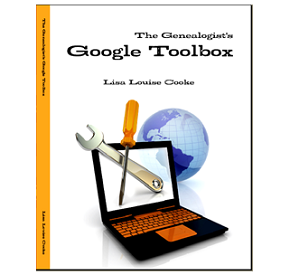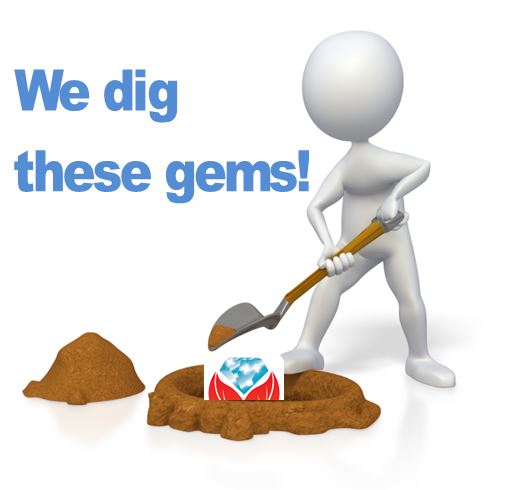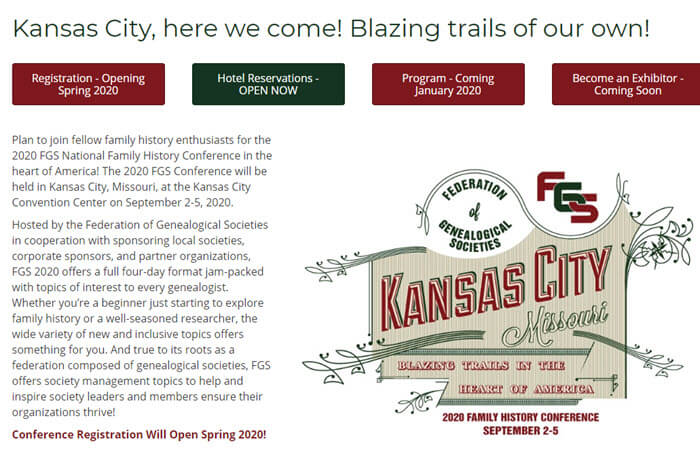by Lisa Cooke | Jun 11, 2015 | 01 What's New, African-American, Ancestry, Beginner, Census, FamilySearch, History, images, Records & databases, Research Skills, United States

Sample census detail image from Ancestry.com.
Imagine taking a standard U.S. census form, translating it into Spanish, administering it to a newly-American population whose racial identity is highly politicized, translating the results back into English and trying to make sense of them 100 years later.
That’s what happens when you’re looking at 1910 census in Puerto Rico.
I stumbled on this story when my dad, a FamilySearch indexer, called my attention to a current project to index previously-missed parts of the 1910 census. A lot of the missing data was for Puerto Rico. The forms are in Spanish. My dad asked my help translating some of what he was reading, since I speak some Spanish. He was concerned that the computer was interpreting some of the abbreviations in English when they were likely Spanish abbreviations. I looked into it and what I found reminded me of these lessons:

From “The US Census and the Contested Rules of Racial Classification in Early Twentieth-Century Puerto Rico,” by Mara Loveman, in Caribbean Studies, 35:2 (July-Dec 2007), 3-36. Click image to go to the paper.
Always read the record itself and seek to understand it. Don’t just rely on the index! The published images of this census on Ancestry interpret “B” in the race column as “Black,” but a little research (thank you, Google Scholar!) reveals that the census takers entered the race in Spanish–so “B” was for “blanco” (read about it in this academic paper).
When you see someone’s race change over the course of a lifetime, consider the historical context. Puerto Rican census data from the early 1900s “show a population becoming significantly whiter from one census to the next” because of “changes in how race was classified on census returns,” says the same paper. Not only were there changes in the official instructions, but the enumerators increasingly didn’t follow them. In fact, on several thousand census entries in 1910 and even more in 1920, “individuals’ racial classifications were manually crossed out, and a different ‘race’ was written in. These post-enumeration edits, it turns out, were done by a select group of Puerto Ricans hired to supervise and ‘correct’ the work of fellow Puerto Rican enumerators.”
 This little historical trivia is not so trivial if you’re wondering why your ancestor may be identified by a different race than you expected. Learn more about finding academic papers like the one quoted here in The Genealogist’s Google Toolbox by Lisa Louise Cooke. Her book shows you how to search Google Scholar for gems like this that make your family history more clear!
This little historical trivia is not so trivial if you’re wondering why your ancestor may be identified by a different race than you expected. Learn more about finding academic papers like the one quoted here in The Genealogist’s Google Toolbox by Lisa Louise Cooke. Her book shows you how to search Google Scholar for gems like this that make your family history more clear!
by Lisa Cooke | Mar 6, 2015 | 01 What's New, Brick Wall, Canadian, Cemeteries, FamilySearch, Google, Maps, Records & databases, Research Skills, United States
Every week, we see so many new genealogy records posted online! We highlight major resources in individual blog posts. But sometimes smaller or  regional collections catch our eye, too. We’ll round these up for you in a post like this on Fridays.
regional collections catch our eye, too. We’ll round these up for you in a post like this on Fridays.
Watch for the genealogy records that your ancestors might appear in–but also watch for the kinds of records that may be out there for your kin, which might help you break down your family history “brick walls.”
PRISON RECORDS. Kingston, Canada, Penitentiary Inmate Ledgers, 1913-1916, are now available on Flickr. According to GenealogyCanada.blogspot.com, “The ledger includes frontal and profile mug shots, the inmate’s name, alias, age, place of birth, height, weight, complexion, eye colour, hair colour, distinctive physical marks, occupation, sentence, date of sentence, place of sentence, crime committed, and remarks of authorities.”
CEMETERY HEADSTONES. The Canadian Headstone Photo Project is now also searchable at FamilySearch.org. The original site with over a million headstone photos isn’t new. But some people don’t know about the site, and its search interface isn’t as pretty or flexible. So we think it’s nice that FamilySearch is hosting that data, too. According to FamilySearch, the collection is still growing. “This collection will include records from 1790-2013. The records include a name index of headstone inscriptions, courtesy of CanadianHeadstones.com, which is a family history database of records and images from Canada’s cemeteries.”
HISTORICAL PROPERTIES MAP INTERFACE. The state of Delaware in the United States has launched an updated version of its CHRIS (Cultural and Historical Resource Information System) GIS tool. Use this interface to explore houses, districts and National Historic Landmarks in your ancestor’s Delaware neighborhoods. Maybe a place they lived, worked, shopped, worshiped or attended is still standing!
 Not sure how to find record sets like these for YOUR family history? Here’s a tip! Use the “numrange” search operator in Google to locate records from a particular time period. Do this by typing the range of years to search (first and last year) into your Google search box, with two periods in between (no spaces). For example, the search “Kingston Penitentiary” 1900..1920 brings up the ledgers mentioned above.
Not sure how to find record sets like these for YOUR family history? Here’s a tip! Use the “numrange” search operator in Google to locate records from a particular time period. Do this by typing the range of years to search (first and last year) into your Google search box, with two periods in between (no spaces). For example, the search “Kingston Penitentiary” 1900..1920 brings up the ledgers mentioned above.
This tip comes to you courtesy of the book The Genealogist’s Google Toolbox, Second Edition by Lisa Louise Cooke–the fully-revised 2015 edition that’s packed with strategies that will dramatically improve your ability to find your family history online.
by Lisa Cooke | May 24, 2014 | 01 What's New, Inspiration, Records & databases
 A new Genealogists’ Declaration of Rights was announced before a crowd of more than 2,500 genealogists at the NGS 2014 Family History Conference in Richmond, Virginia recently. Jordan Jones, President of the National Genealogical Society (NGS), a sponsoring member of the Records Preservation and Access Committee (RPAC).
A new Genealogists’ Declaration of Rights was announced before a crowd of more than 2,500 genealogists at the NGS 2014 Family History Conference in Richmond, Virginia recently. Jordan Jones, President of the National Genealogical Society (NGS), a sponsoring member of the Records Preservation and Access Committee (RPAC).
According to the NGS Press Release, “The Declaration of Rights is a statement advocating open access to federal, state, and local public records. The Declaration affirms America’s long history of open public records, which has been threatened the last few years over concerns about identity theft and privacy. The Records Preservation and Access Committee has worked with state and federal legislators as well as local public officials for more than twenty years in support of legislation and regulations that achieve a balance between access and privacy. The Declaration of Rights has been approved by the board of directors of the three sponsoring organizations: The National Genealogical Society (NGS), the Federation of Genealogical Societies (FGS), and the International Association of Jewish Genealogical Societies (IAJGS).”
Genealogists from all over the U.S. signed the Declaration at NGS, and will continue to do so in the coming months at the IAJGS Conference on Jewish Genealogy in Salt Lake City, Utah (27 July–1 August) and the Federation of Genealogical Societies Conference in San Antonio, Texas (27–30 August). You can click here to sign it electronically if you would like to (though you can’t do it in person.)
The press release further states, “Genealogists advocate the right of access to records held by government agencies including but not limited to vital records (births, marriages, deaths, divorces); land conveyances and mortgages; tax assessments; guardianships; probates of estates; criminal proceedings; suits of law and equity; immigration; military service and pensions; and acts of governmental entities. Genealogists further advocate that they need to be allowed access to original records when photocopies, microfilm, digital images, or other formats are insufficient to establish clear text, context, or completeness of the record. The rights of genealogists specified in the Declaration object to numerous barriers created to deny them access to records.
“Thousands of professional genealogists do research every day on behalf of clients, government agencies, and attorneys. Of particular note are the many forensic genealogists who assist the Department of Defense in locating heirs for the repatriation of remains from previous wars; assist county coroners in the identification of unclaimed persons; work with attorneys in locating missing and unknown heirs involving estates, trusts, real estate quiet title actions, oil and gas and mineral rights, and other similar legal transactions; trace and track heritable medical conditions where finding distant cousins can facilitate early treatment and possibly prevent a premature death; research stolen art and artifacts for repatriation; and identify American Indians, Native Alaskans, and Native Hawaiians to determine eligibility for tribal benefits.”
by Lisa Cooke | Jan 20, 2020 | 01 What's New, Conferences
The Federation of Genealogists annual conference will be held in Kansas City, Missouri on September 2 – 5, 2020. I’ll be there and I hope you will be too. Watch our #FGS2020 page here to learn more about my activities at #FGS2020.
If you’re planning to attend, now is the time to book your hotel reservation. Rooms can fill up very quickly.
Here are all the details from the press release from the folks at the Federation of Genealogical Societies.

HOTEL RESERVATIONS NOW OPEN FOR THE FGS 2020 CONFERENCE IN KANSAS CITY, MISSOURI
*1/11/2020** – Austin, TX*.
FGS is pleased to announce that hotel reservations are now open for the 2020 Conference to be held in Kansas City, Missouri.
The Kansas City Marriott Downtown is now taking reservations for the 2020 FGS Family History Conference, “Blazing Trails in the Heart of America” The conference will be held September 2-5, 2020. This hotel is set in the heart of the downtown district and connects via walkway to the Kansas City Convention Center where the conference will be held.
FGS 2020 Conference room rates are available Saturday August 29, 2020 until Tuesday September 8, 2020 (subject to availability). Reservations must be made by August 3, 2020 to secure the conference rate.
Kansas City Marriott Downtown
200 West 12th Street, Kansas City, Missouri 64105
Full details and links for FGS discounted reservations can be found on the FGS website here.

Screen shot of FGS conference website.
Conference hotels fill up quickly, so it is not too early to make reservations. We look forward to seeing you in Kansas City!
About the Federation of Genealogical Societies (FGS)
The Federation of Genealogical Societies (FGS) was founded in 1976 and empowers the genealogical and family history community, especially its societies and organizations, by advocating for the preservation and access of records and providing resources that enable genealogical organizations to succeed in pursuing their missions.
FGS helps genealogical societies and family history enthusiasts alike to strengthen and grow through online resources, *FGS FORUM *magazine, and through its annual national conference which provides four days of excellent learning opportunities for both societies and family history enthusiasts.
FGS launched the Preserve the Pensions project in 2010 to raise more than $3 million to digitize and make freely available the pension files from the War of 1812. Fundraising was completed for that project in 2016 and the digitization continues. FGS was also the driving force behind the Civil War Soldiers and Sailors project alongside the National Parks Service.

 This little historical trivia is not so trivial if you’re wondering why your ancestor may be identified by a different race than you expected. Learn more about finding academic papers like the one quoted here in The Genealogist’s Google Toolbox by Lisa Louise Cooke. Her book shows you how to search Google Scholar for gems like this that make your family history more clear!
This little historical trivia is not so trivial if you’re wondering why your ancestor may be identified by a different race than you expected. Learn more about finding academic papers like the one quoted here in The Genealogist’s Google Toolbox by Lisa Louise Cooke. Her book shows you how to search Google Scholar for gems like this that make your family history more clear!

 regional collections catch our eye, too. We’ll round these up for you in a post like this on Fridays.
regional collections catch our eye, too. We’ll round these up for you in a post like this on Fridays. Not sure how to find record sets like these for YOUR family history? Here’s a tip! Use the “numrange” search operator in Google to locate records from a particular time period. Do this by typing the range of years to search (first and last year) into your Google search box, with two periods in between (no spaces). For example, the search “Kingston Penitentiary” 1900..1920 brings up the ledgers mentioned above.
Not sure how to find record sets like these for YOUR family history? Here’s a tip! Use the “numrange” search operator in Google to locate records from a particular time period. Do this by typing the range of years to search (first and last year) into your Google search box, with two periods in between (no spaces). For example, the search “Kingston Penitentiary” 1900..1920 brings up the ledgers mentioned above.

